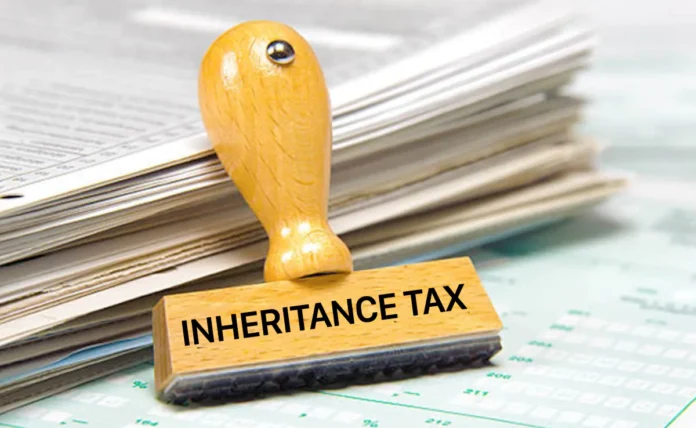Inheriting money or property from a loved one can be a bittersweet experience. While it offers financial security and a chance to fulfill dreams, it can also raise questions about taxes. One such question is: Inheritance tax. Does the U.S. have an inheritance tax, and how might it affect you?
This blog post will clarify the concept of inheritance tax and its role in the U.S. tax system. We’ll explore which states have it, who is responsible for paying it, and strategies to minimize its impact.
Understanding Inheritance Tax vs. Estate Tax
It’s important to distinguish between inheritance tax and estate tax. An estate tax is a federal levy on the total value of an estate before it’s distributed to beneficiaries. Inheritance tax, on the other hand, is a state-imposed tax on the value of assets received by individual beneficiaries.
Does the U.S. Have an Inheritance Tax?
The federal government does not have a general inheritance tax. However, the U.S. does have an estate tax, but it only applies to very large estates. As of 2024, the federal estate tax only applies to estates exceeding $12.92 million for single filers and $25.84 million for married couples filing jointly.
States with Inheritance Tax
While there’s no federal inheritance tax, some states have their own inheritance tax laws. Currently, only six states levy an inheritance tax: Iowa, Kentucky, Maryland, Nebraska, New Jersey, and Pennsylvania. These states have varying tax rates and exemption levels, so it’s crucial to understand the specific laws in your state.
Who Pays Inheritance Tax?
The inheritance tax is not paid by the estate itself. The responsibility falls on the individual beneficiaries who inherit assets. The amount of tax owed depends on the value of the inheritance you receive, your relationship to the deceased, and the state’s tax laws. For instance, in Pennsylvania, inheritance tax rates range from 0% for surviving spouses to 16% for distant relatives.
Minimizing the Impact of Inheritance Tax
If you live in a state with an inheritance tax, there are strategies you can explore to minimize its impact on your inheritance:
- Lifetime Gifting: The deceased can make gifts to beneficiaries throughout their lifetime to reduce the overall value of their estate and potentially lower the inheritance tax burden. However, there are limitations on lifetime gifting, so consulting with a tax advisor is recommended.
- Life Insurance: Life insurance allows you to leave a tax-free death benefit to your beneficiaries. The proceeds from a life insurance policy are generally not considered part of the estate and are not subject to inheritance tax.
- Charitable Giving: Leaving a portion of your estate to charity can not only benefit a cause you care about but also potentially reduce the inheritance tax liability for your beneficiaries. Many states offer tax deductions for charitable contributions from estates.
Seek Professional Guidance
Inheritance tax laws can be complex, and navigating them can be challenging. If you anticipate inheriting a significant amount of money or live in a state with an inheritance tax, consider seeking professional guidance from a tax advisor or estate planning attorney. They can help you understand your specific situation and develop strategies to minimize tax liabilities.
Conclusion
While the U.S. doesn’t have a general inheritance tax, some states do. Understanding inheritance tax laws and exploring tax-minimizing strategies can help ensure your loved ones receive the maximum benefit from your legacy.
Frequently Asked Questions on Various Online Platforms Like Google, Quora, Reddit and others
Pennsylvania is one of the six states with an inheritance tax. Here are some ways to potentially minimize its impact:
- Lifetime Gifting: The deceased can give assets to beneficiaries during their lifetime. This reduces the estate’s overall value and potentially lowers the inheritance tax burden. However, there are limitations on lifetime gifting, so consulting with a tax advisor is crucial.
- Life Insurance: Life insurance benefits are typically not considered part of the estate and are not subject to inheritance tax in Pennsylvania. This allows you to leave a tax-free benefit to your loved ones.
- Spousal Transfers: Property owned jointly by spouses with the right of survivorship is generally exempt from Pennsylvania inheritance tax.
- Charitable Giving: Leaving a portion of your estate to charities registered in Pennsylvania can reduce your taxable estate and potentially lower the inheritance tax for your beneficiaries. Pennsylvania offers tax deductions for charitable contributions from estates.
- Estate Planning: Consulting with an estate planning attorney can help you create a strategy that minimizes your estate’s taxable value and reduces the inheritance tax burden on your beneficiaries. They can explore options like trusts or beneficiary designations that might be beneficial.
“Florida doesn’t impose any state-level inheritance taxes, meaning your heirs won’t see their inheritances reduced by costly Florida inheritance taxes.”
However, Florida residents may still be subject to the federal estate tax if their estate exceeds the exemption amount ($12.92 million for individuals in 2023). There is no separate Florida state-level inheritance or estate tax.
See Also- Can You Refuse to Inherit a Timeshare
